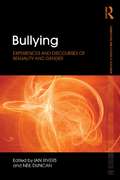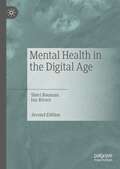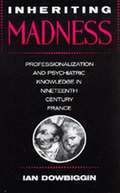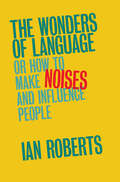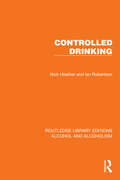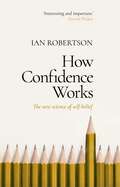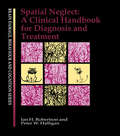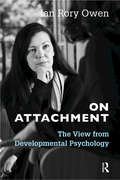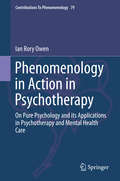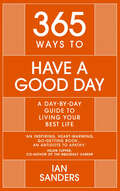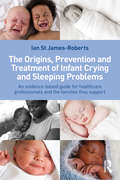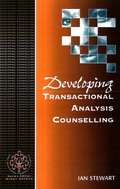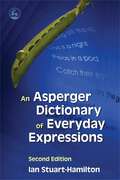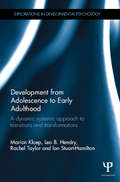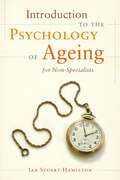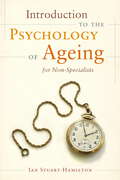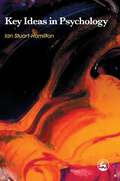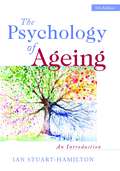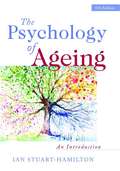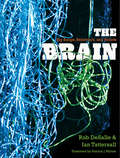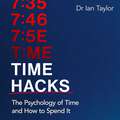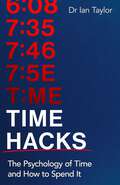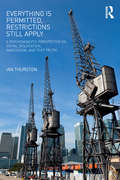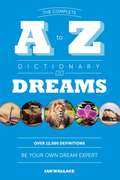- Table View
- List View
Bullying: Experiences and discourses of sexuality and gender (Foundations And Futures Of Education Ser.)
by Ian Rivers Neil DuncanBullying: Experiences and Discourses of Sexuality and Gender provides a valuable insight into the experiences of young people and how bullying can impact upon them in the school environment. The book offers an introduction to the key issues associated with bullying on the grounds of sex and sexual orientation, and points to key policies and guidanc
Mental Health in the Digital Age
by Sheri Bauman Ian RiversThis second edition of this highly impactful book examines the intersection of mental health and digital technology to make informed decisions about the new options provided by digital technology. It highlights the rise in online therapy and social media and examines the ethical dilemmas involved in online research to suggest that the benefits created far outweigh the possible risks. This expanded and updated second edition, includes practical suggestions for clinicians and public, builds upon the first by updating readers on recent developments in technology and research in this area since 2015. It explores ways in which governments and practitioners responded to the mental health crisis caused by the Covid-19 pandemic, and looks at the challenges as well as the benefits of our increasing interaction online.
Inheriting Madness: Professionalization and Psychiatric Knowledge in Nineteenth Century France
by Ian Robert DowbigginHistorically, one of the recurring arguments in psychiatry has been that heredity is the root cause of mental illness. In Inheriting Madness, Ian Dowbiggin traces the rise in popularity of hereditarianism in France during the second half of the nineteenth century to illuminate the nature and evolution of psychiatry during this period. In Dowbiggin's mind, this fondness for hereditarianism stemmed from the need to reconcile two counteracting factors. On the one hand, psychiatrists were attempting to expand their power and privileges by excluding other groups from the treatment of the mentally ill. On the other hand, medicine's failure to effectively diagnose, cure, and understand the causes of madness made it extremely difficult for psychiatrists to justify such an expansion. These two factors, Dowbiggin argues, shaped the way psychiatrists thought about insanity, encouraging them to adopt hereditarian ideas, such as the degeneracy theory, to explain why psychiatry had failed to meet expectations. Hereditarian theories, in turn, provided evidence of the need for psychiatrists to assume more authority, resources, and cultural influence. Inheriting Madness is a forceful reminder that psychiatric notions are deeply rooted in the social, political, and cultural history of the profession itself. At a time when genetic interpretations of mental disease are again in vogue, Dowbiggin demonstrates that these views are far from unprecedented, and that in fact they share remarkable similarities with earlier theories. A familiarity with the history of the psychiatric profession compels the author to ask whether or not public faith in it is warranted.
The Wonders of Language
by Ian RobertsIan Roberts offers a stimulating introduction to our greatest gift as a species: our capacity for articulate language. We are mostly as blissfully unaware of the intricacies of the structure of language as fish are of the water they swim in. We live in a mental ocean of nouns, verbs, quantifiers, morphemes, vowels and other rich, strange and deeply fascinating linguistic objects. This book introduces the reader to this amazing world. Offering a thought-provoking and accessible introduction to the main discoveries and theories about language, the book is aimed at general readers and undergraduates who are curious about linguistics and language. Written in a lively and direct style, technical terms are carefully introduced and explained and the book includes a full glossary. The book covers all the central areas of linguistics, including phonetics, phonology, morphology, syntax, semantics and pragmatics, as well as historical linguistics, sociolinguistics and psycholinguistics.
Controlled Drinking (Routledge Library Editions: Alcohol and Alcoholism)
by Ian Robertson Nick HeatherOriginally published in 1981 and revised in 1983, Controlled Drinking was the first scholarly review of the literature on a controversial but increasingly practiced approach to the treatment of alcoholism. Nick Heather and Ian Robertson analyse all the pertinent questions that controlled drinking raises, starting with the need to examine the ‘disease conception’ of alcoholism and ‘total abstinence’ treatment. They look at the evidence indicating that some people, previously diagnosed as alcoholics, are able to return to normal, controlled patterns of drinking, and discuss therapies where controlled drinking is the treatment goal, fully reviewing the evidence for their success and failure. Concluding with a discussion of the theoretical and policy implications of controlled drinking, the authors recommend that the disease view of alcoholism be finally abandoned. For the revised paperback edition, as well as correcting and updating the text and references, the authors included an important postscript on the charges of falsification of evidence and their subsequent refutation which made up the Sobell affair. The wealth of other material presented in Controlled Drinking supports the authors’ conclusions even if the Sobells’ work were ignored. However, this revised edition was made more useful for student and professional readers by the postscript’s discussion of the controversy surrounding the most widely known and quoted controlled drinking trial at the time.
How Confidence Works: The new science of self-belief
by Ian Robertson* Confidence makes your brain work better and boosts your performance* Confidence acts like a mini-antidepressant, lifting your mood* Confidence is contagious* Confidence is anxiety's greatest antidote* Confidence is a set of habits that feel fake at first but become real with practice* Confidence makes boys bullsh*t more than girls* Overconfidence can have disastrous consequences_________'Brilliant ... it will change how you think about confidence.' Johann Hari'Important for everyone but crucial for women.' Mary Robinson'Interesting and important.' Steven Pinker__________Imagine we could discover something that could make us richer, healthier, longer-living, smarter, kinder, happier, more motivated and more innovative. Ridiculous, you might say... What is this elixir?Confidence.If you have it, it can empower you to reach heights you never thought possible. But if you don't, it can have a devastating effect on your future. Confidence lies at the core of what makes things happen.Exploring the science and neuroscience behind confidence that has emerged over the last decade, clinical psychologist and neuroscientist Professor Ian Robertson tells us how confidence plays out in our minds, our brains and indeed our bodies. He explains where it comes from and how it spreads - with extraordinary economic and political consequences. And why it's not necessarily something you are born with, but something that can be learned.__________'Rich stories and change-inspiring examples for every kind of performer.' Pippa Grange'Appealing... ranges from neuroscience to politics.' Nature
Spatial Neglect: A Clinical Handbook for Diagnosis and Treatment (Brain, Behaviour and Cognition)
by Ian Robertson Peter W HalliganSpatial neglect is a profound clinical problem as well as intriguing scientific problem. In the last ten years, there has been an explosion of interest in this disorder, which as a result is no longer viewed as a single entity, but rather as a number of different disorders. This book is an attempt to bring the reader up to date with the latest advances in understanding neglect, at least insofar as this contributes to better clinical assessment, management and treatment. This is not a book for the specialist researcher in the neuropsychology of neglect and attention. Rather, it is a book aimed at clinicians - student and trained - from all disciplines involved in the assessment, management and treatment of neglect.The book begins with the description of four cases manifesting different types of unilateral neglect. The reader is introduced to different aspects of neglect through these patients. These distinctions include those between personal and extrapersonal neglect, motor versus sensory neglect and many others. The reader is also introduced to other phenomena that are closely related to neglect, including ansognosia and impaired sustained attention. The latest methodes of assessment of neglect are also described, as are methods of treatment, again with reference to the four introductory specimen cases.
On Attachment: The View from Developmental Psychology
by Ian Rory OwenAttachment theory occupies an integrative position between psychodynamic therapy and various perspectives within empirical psychology. Since therapy began, its way of thinking has been to interpret mental processes in relation to meaningful psychological objects between children and parents, partners, friends, and within individual therapy. This volume summarises the research literature relating to attachment theory in developmental psychology in order to clarify conclusions that support practice. Part 1 considers the received wisdom about attachment, and summarises the literature and what it means for understanding relationships and defences as part of development. Part 2 considers attachment in relation to emotional regulations, while part 3 applies the clarified understanding of attachment processes to inform assessment and therapy, and more broadly, mental health work in general. The ideas of Sigmund Freud and John Bowlby are used to reinvigorate psychodynamic practice.
Phenomenology in Action in Psychotherapy
by Ian Rory OwenThis book takes Edmund Husserl's phenomenology and applies it to help psychotherapy practitioners formulate complex psychological problems. The reader will learn about Husserl's system of understanding and its concepts that can point to first-person lived experience, and about the work of Husserl scholars who have developed a way to be precise about the experiences that clients have. Through exploring the connection between academic philosophy of consciousness and mental health, themes of biopsychosocial treatment planning, psychopathology of personality and psychological disorders, and the treatment of complex psychological problems all emerge. The author shows that Husserlian phenomenology can be used in the design of interventions for each client in a process called formulation. Once the intentionality of consciousness of an individual is understood, by asking simple questions, it becomes possible to define problematic experiences. This is a means of creating informed consent for treatment and it also makes it clear to clients what is happening for them, so helping them understand themselves and how they see the world. We also see how Husserl's phenomenology is a vehicle for psychotherapists to present their knowledge about the research literature of what has been found to be effective care. This volume applies the concepts and practices of phenomenology in a concrete way, relating them to the practice of therapy and showing the value of a qualitative approach to understanding mental processes and the nature of human beings as motivated by values, meanings and other conscious experiences. This is a readable text in simple language that condenses key aspects of Husserl's thinking in relation to the theory and practice of psychotherapy, and it is suitable for philosophers and practitioners of psychology, psychiatry, and the psychotherapies, including psychoanalysis.
365 Ways to Have a Good Day: A Day-by-day Guide to Living Your Best Life
by Ian SandersHOW ARE THE NEXT TWELVE MONTHS LOOKING FOR YOU? PRETTY MUCH THE SAME AS LAST YEAR? OR ARE YOU READY FOR BETTER?365 WAYS TO HAVE A GOOD DAY is a full year's worth of daily inspiration, tools, habits, actions, and rituals that will help you live your best life. You'll discover surprising insights from psychologists, business leaders, entrepreneurs and designers. You'll explore the benefits of Feierabends and Laughies, have your eyes opened by a dance psychologist, and find out why one senior executive's tattooed fingers help him make the right career choices. You'll learn habit-forming strategies, pick up helpful hacks, and uncover tips for lasting change - all brought to life through real examples and thought-provoking stories that will get you looking at life differently.You'll meet a cast of characters from around the world who know all about creating success, from the founder of a billion-dollar mindfulness company in California to the Hollywood screenwriter who takes up to eight showers a day to fuel his ideas, and from the Harvard Business School professor who discovered more joy at work by wearing red trainers to the man who every Friday for five years set up a table in central NYC to give advice to strangers, including a gang member on the run.365 WAYS TO HAVE A GOOD DAY focuses on the small stuff you can do every day to make life better. Because when you get the little things right, the big things follow. Things like figuring out where you're going, hitting reset, designing the life you want, breaking through limiting beliefs, and creating success on your own terms. And when you find what works for you, you can do more of it, making you more productive, more fulfilled, and much happier.IT'S TIME TO SEIZE THE DAY. ALL 365 OF THEM.
365 Ways to Have a Good Day: A Day-by-day Guide to Living Your Best Life (365 Series)
by Ian SandersHOW ARE THE NEXT TWELVE MONTHS LOOKING FOR YOU? PRETTY MUCH THE SAME AS LAST YEAR? OR ARE YOU READY FOR BETTER? 365 WAYS TO HAVE A GOOD DAY is a full year's worth of daily inspiration, tools, habits, actions, and rituals that will help you live your best life. You'll discover surprising insights from psychologists, business leaders, entrepreneurs and designers. You'll explore the benefits of Feierabends and Laughies, have your eyes opened by a dance psychologist, and find out why one senior executive's tattooed fingers help him make the right career choices. You'll learn habit-forming strategies, pick up helpful hacks, and uncover tips for lasting change - all brought to life through real examples and thought-provoking stories that will get you looking at life differently.You'll meet a cast of characters from around the world who know all about creating success, from the founder of a billion-dollar mindfulness company in California to the Hollywood screenwriter who takes up to eight showers a day to fuel his ideas, and from the Harvard Business School professor who discovered more joy at work by wearing red trainers to the man who every Friday for five years set up a table in central NYC to give advice to strangers, including a gang member on the run. 365 WAYS TO HAVE A GOOD DAY focuses on the small stuff you can do every day to make life better. Because when you get the little things right, the big things follow. Things like figuring out where you're going, hitting reset, designing the life you want, breaking through limiting beliefs, and creating success on your own terms. And when you find what works for you, you can do more of it, making you more productive, more fulfilled, and much happier.IT'S TIME TO SEIZE THE DAY. ALL 365 OF THEM.
The Origins, Prevention and Treatment of Infant Crying and Sleeping Problems: An Evidence-Based Guide for Healthcare Professionals and the Families They Support
by Ian St James-RobertsBabies who cry a lot, or are unsettled in the night, are common sources of concern for parents and, consequently, costly problems for health services. In this book, Ian St James-Roberts summarises the evidence concerning infant crying and sleeping problems to provide a new evidence-based approach to these common challenges for parents and health services. The book begins by distinguishing between infant and parental parts of the problems and provides guidelines for assessing each issue. Topics covered include: • the pros and cons of 'infant-demand' versus 'limit-setting' forms of parenting • causes of infant 'colicky' crying and night waking• effects of night-time separations on infant attachments• interventions such as swaddling, herbal remedies, and 'controlled crying.' Since there is now firm evidence that parents' vulnerabilities and cultural backgrounds affect how problems are defined and guidance is acted upon, and that parents who wish to do so can reduce infant crying and unsettled night waking, social factors are considered alongside medical issues. Translating research evidence into practical tools and guidance, The Origins, Prevention and Treatment of Infant Crying and Sleeping Problems will be essential reading for a wide range of healthcare professionals including mental health staff, social workers, midwives, health visitors, community physicians and paediatricians.
Developing Transactional Analysis Counselling (Developing Counselling series #7)
by Ian Stewart`This is an excellent book. Whilst specifically aimed at the "newer counsellor", this book contains much that will be of interest to experienced practitioners both within and outside of TA. . . this book is an excellent guide to implementing TA techniques and treatment planning particularly from a process model perspective. It incorporates many new ideas which will make it refreshing and inspiring for both new and experienced counsellors and psychotherapists' - ITA News This concise workbook provides 30 practical suggestions to help practising counsellors develop and enhance their Transactional Analysis (TA) counselling skills. After a brief introductory section that summarizes the essentials of TA theory and technique, the book covers crucial aspects of best practice in current TA, many of them unavailable in book form until now. Presenting new and wide-ranging material, each of the 30 suggestions - which are supported by useful case examples - encourages both experienced and trainee counsellors to think carefully about their work and how it can be made even more effective. Ian Stewart provides much-needed practical guidance to such key areas as contract-making, time-frames and the Process Model.
An Asperger Dictionary of Everyday Expressions: Second Edition
by Ian Stuart-HamiltonThis revised and expanded edition adds over 300 new expressions that help unlock the meaning of everyday expressions. Both informative and entertaining, the book addresses an important aspect of social communication for people with Asperger Syndrome, who use direct, precise language and `take things literally'. This dictionary aims to dispel any confusion that arises from the misinterpretation of language. It provides explanations of over 5000 idiomatic expressions and a useful guide to their politeness level. Each expression is accompanied by a clear explanation of its meaning and when and how it might be used. The expressions are taken from British and American English, with some Australian expressions included as well. Although the book is primarily intended for people with Asperger Syndrome, it will be useful for anyone who has problems understanding idiomatic and colloquial English. An essential resource and an informative read; this dictionary will assist in a wide range of situations.
Development from Adolescence to Early Adulthood: A dynamic systemic approach to transitions and transformations (Explorations in Developmental Psychology)
by Ian Stuart-Hamilton Leo Hendry Marion Kloep Rachel TaylorTraditionally, the subject of adolescent development has been explored using a stage based approach, often with an emphasis on the potential risks and problems of adolescence. Taking a different approach, in this book the authors draw upon a wealth of research to examine the period of development from adolescence to adulthood from a dynamic systems perspective; investigating multi-facetted, multi-variable explanations surrounding the transitions and consequent transformations that occur in young peoples’ lives, as they change from teenagers to young adults. The book considers the social institutions, interactions, contexts and relationships that influence each other, and young people, during developmental transitions. Topics covered include: dynamic systems theory in developmental and social psychology adolescents in social contexts compliments, lies and other social skills school, university and labour market transition adolescent health in a lifespan context family dynamics. Development from Adolescence to Early Adulthood will be key reading for academics, researchers and postgraduate students in the field of developmental psychology, as well as clinicians and policy makers working with young people.
Introduction to the Psychology of Ageing for Non-Specialists
by Ian Stuart-HamiltonWhether you provide care for older people, or you are simply interested in ageing, this complete primer on the psychology of ageing explains the key issues clearly and concisely. Beginning with explanations of ageing, life expectancy and demographics, it goes on to discuss the aspects of ageing that have the most impact on people's lives. From changes in intelligence and personality to mental health and sexuality, the author explains the psychology involved and focuses on the points that have most impact on people's lives. Drawing on the latest findings in the field, the book provides a comprehensive overview of the subject. The book will be a key resource for anyone interested in what happens as we age, as well as social workers, care workers, nurses, medical professionals.
Introduction to the Psychology of Ageing for Non-Specialists
by Ian Stuart-HamiltonThe complete primer for non-specialists on the psychology of ageing.Whether you provide care for older people, or you are simply interested in ageing, this complete primer on the psychology of ageing explains the key issues clearly and concisely. Beginning with explanations of ageing, life expectancy and demographics, it goes on to discuss the aspects of ageing that have the most impact on people's lives. From changes in intelligence and personality to mental health and sexuality, the author explains the psychology involved and focuses on the points that have most impact on people's lives. Drawing on the latest findings in the field, the book provides a comprehensive overview of the subject.The book will be a key resource for anyone interested in what happens as we age, as well as social workers, care workers, nurses, medical professionals.(P) 2014 Hodder & Stoughton Limited
Key Ideas in Psychology
by Ian Stuart-HamiltonThis accessible book has a simple aim - to tell people what psychology is about. It presents a review of the key areas of the subject as it is traditionally taught, and provides the reader with an introduction to important concepts and findings within each of these. Armed with the information in this book, the reader should be able at least to make sense of most psychological topics. At the end of each chapter is a set of suggested further readings which will enable a more detailed exploration of the particular topic under discussion to be made. The book will be of interest to two groups of readers. The first comprises people who are new to the subject and simply want to know what psychology is. The second consists of those who want a general guide to an area but who wish to make up their minds on the details for themselves. Hence the basic information and arguments are explained, but details are not elaborated.
The Psychology of Ageing: An Introduction
by Ian Stuart-HamiltonThis well-established and accessible text has been completely revised in this expanded fifth edition. Each chapter has been updated, often extensively, to reflect current thinking, and an important new chapter on death, dying and bereavement has been added. Providing a comprehensive overview of the psychological processes of ageing, the text examines what constitutes older age, and presents the latest theory and research in various domains, including ageing and memory; ageing and language; ageing, personality and lifestyle; and mental illness and ageing. Consideration is given to the problems inherent in measuring the psychological status of older people, and the author looks to the future to answer the question 'what will constitute 'being old'?' This new edition is essential reading for all those working or training to work with older people, and a key text for students.
The Psychology of Ageing: An Introduction (Fifth Edition)
by Ian Stuart-HamiltonThis well-established and accessible text has been completely revised in this expanded fifth edition. Each chapter has been updated, often extensively, to reflect current thinking, and an important new chapter on death, dying and bereavement has been added. Providing a comprehensive overview of the psychological processes of ageing, the text examines what constitutes older age, and presents the latest theory and research in a variety of domains, including intellectual change in later life; ageing and memory; ageing and language; ageing, personality and lifestyle; and mental health and ageing. Consideration is given to the problems inherent in measuring the psychological status of older people, and the author looks to the future to answer the question "what will constitute 'being old'?" This new edition is essential reading for all those working or training to work with older people, and a key text for students.
The Brain: Big Bangs, Behaviors, and Beliefs
by Ian Tattersall Rob DeSalle&“An engaging and complex examination of the development of the human brain throughout its evolutionary history&” (Publishers Weekly). After several million years of jostling for ecological space, only one survivor from a host of hominid species remains standing: us. Human beings are extraordinary creatures, and it is the unprecedented human brain that makes them so. In this delightfully accessible book, the authors present the first full, step-by-step account of the evolution of the brain and nervous system. Tapping the very latest findings in evolutionary biology, neuroscience, and molecular biology, Rob DeSalle and Ian Tattersall explain how the cognitive gulf that separates us from all other living creatures could have occurred. They discuss • The development and uniqueness of human consciousness • How human and nonhuman brains work • The roles of different nerve cells • The importance of memory and language in brain functions, and much more Our brains, they conclude, are the product of a lengthy and supremely untidy history—an evolutionary process of many zigs and zags—that has accidentally resulted in a splendidly eccentric and creative product.
Time Hacks: The psychology of time and how to spend it
by Ian TaylorWe think of time as scarce and finite. We say we 'don't have enough time', that 'time is against us', and that 'time waits for no one'. But what if we could make time feel more abundant? How can we make time work for rather than against us?In Time Hacks, Dr Ian Taylor - a world-leading expert in the science of the human mind - draws on the latest psychological research to reveal how we can develop a healthier relationship to time; one where we can break free of the cycle of boredom and mania, be more productive, and bring balance to all parts of our lives.In the process, he demonstrates why all difficult tasks should be done early in the morning, the detrimental effects of relying on willpower, why we should use 'be' goals to sustain motivation, and how to replace 'dead time' with activities that nourish the soul.Fascinating and eye-opening, Time Hacks will show you how to use the power of psychology to feel less time pressured, boost your mental and physical health, and break free from the tyranny of your alarm clock.
Time Hacks: The psychology of time and how to spend it
by Ian TaylorWe think of time as scarce and finite. We say we 'don't have enough time', that 'time is against us', and that 'time waits for no one'. But what if we could make time feel more abundant? How can we make time work for rather than against us?In Time Hacks, Dr Ian Taylor - a world-leading expert in the science of the human mind - draws on the latest psychological research to reveal how we can develop a healthier relationship to time; one where we can break free of the cycle of boredom and mania, be more productive, and bring balance to all parts of our lives.In the process, he demonstrates why all difficult tasks should be done early in the morning, the detrimental effects of relying on willpower, why we should use 'be' goals to sustain motivation, and how to replace 'dead time' with activities that nourish the soul.Fascinating and eye-opening, Time Hacks will show you how to use the power of psychology to feel less time pressured, boost your mental and physical health, and break free from the tyranny of your alarm clock.
Everything is Permitted, Restrictions Still Apply: A Psychoanalytic Perspective on Social Dislocation, Narcissism, and Post Truth
by Ian ThurstonThis book applies historicised psychoanalytic thinking in a non-reductive way to better understand the dominant emotional trends in contemporary cultural and socio-political life, with a specific focus on the relationship between social dislocation, narcissism, and "post truth". Rapid social dislocation and change are ubiquitous in late capitalist societies, though these processes may be felt unequally. Following the work of the late Christopher Lasch, Everything is Permitted, Restrictions Still Apply suggests there are powerful narcissistic trends in contemporary life mitigating against the capacity to acknowledge and face these changes; in other words, against the capacity to face reality and to mourn. There is a tendency to assert the primacy of a compelling emotional narrative over the claims of evidence and expertise, and to relate to others, past and present, as alternately idealised and/or denigrated aspects of the self. These trends permeate across socio-cultural divides and the political spectrum – underpinning phenomena as apparently divergent as free-market fundamentalism, certain forms of anti-capitalism, and contemporary identity and victim politics of both nominal right and left: movements that have more emotional and intellectual underpinnings in common than their proponents may care to admit. The contrast between liberal progressiveness and post-truth populism ignores the inter-relationship of these phenomena and begs the question of those powerful subjectivist and relativistic trends amongst sections of radical and "progressive" opinion that have long sought to problematise the very notion of truth. This book links these phenomena to contemporary social defences against facing limitation, loss, and internal conflict. More specifically it argues that in a pseudo-therapeutic culture preoccupied with narratives of victimhood, the losses associated with "traditional" manufacturing and its attendant associational cultures have neither been acknowledged nor mourned. Everything is Permitted, Restrictions Still Apply will appeal to all readers interested in history, politics, and socio-cultural analysis, and in new ways of thinking about contemporary issues. It will be of particular interest to researchers applying a psycho-social perspective on contemporary conflict and to a psychoanalytically informed readership.
The Complete A to Z Dictionary of Dreams: Be Your Own Dream Expert
by Ian WallaceIf you've ever woken up wondering, "What was that about?" this fascinating dream dictionary with over 12,000 definitions will explain everything and enable you to become your own dream expert. By exploring your dreams in a deeper way, you'll reach a profound understanding of what you really want in life – and work out how to achieve it. Whether you dream about flying above canyons, your teeth dropping out, missing the bus, or standing naked in a crowded room, psychologist and author Ian Wallace will help you understand what your unconscious is trying to tell you and how you can use your dreams to help you live a richer and more fulfilling life. By exploring your dreams in this practical way, you'll reach a deeper understanding of what you really want in life – and work out how to achieve it. Ian Wallace pairs these definitions with his completely original Dream Connection Process, which is being shared here for the first time. Through this process, developed by Ian, the dreamer can connect the imagery and symbolism that they create in their dreams to situations and opportunities in waking life, using this awareness to make a valuable difference in their lives.The Complete A to Z Dictionary of Dreams: Be Your Own Dream Expert also contains background information on dreams and dreaming, answering questions such as:What is a dream?Why do we dream?How do I remember my dreams?What do my dreams mean?What are symbols and where do they come from?In this comprehensive and easy to use guide, Ian Wallace articulates the complex psychological principles of dreaming in a very straightforward and engaging manner. He puts the power of the dream firmly in the hands of the dreamer so that they can understand the imagery that they create in their dreams and connect it to situations and opportunities in waking life.
